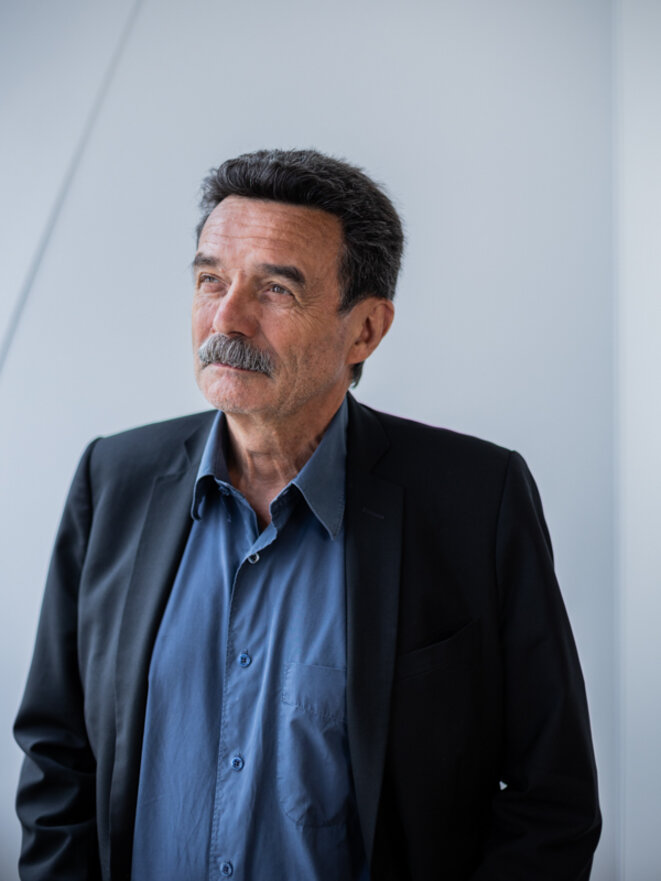Beyond placing peace in the world in peril, the invasion of Ukraine ordered by Vladimir Putin, and the ensuing war, has claimed two peoples as victims. The first, obviously, are the Ukrainian people, the civilians, towns, freedoms and hopes who are the target. But also a victim are the Russian people, whose society is brutalised by the Putin regime, which has put an end to any possibility of critical expression, of freedom of information, of political opposition – of dissidence, in short.
It was to make heard the voices of those who, inside Russia itself, are not resigned to that situation that, in November 2022, Mediapart opened in its participative Club section a freely accessible blog entitled Russie : les voix de la dissidence d’aujourd’hui (Russia: the voices of dissidence today). In partnership with the galaxy of dissidents and their networks of mutual support, this space of free expression is open to all contributions about the profound crisis that Russian civil society is experiencing. Repressed and gagged, hunted and exiled, dissidents continue to resist and fight, caught between despair and hope.
Following the publication of an introduction to the blog, we have published four posts (all in French). One is by a Russian activist with the Feminist Anti-War Resistance (FAR) movement, another is by a young Russian climate militant who today lives in exile, and yet another details the practice of torture in Russia. Before those were put online, the first contribution to be published was written and signed by Oleg Orlov, the co-chair of Russian human rights group Memorial, which was shut down and banned by the Kremlin at the end of 2021. The post was published by Mediapart on November 13th 2022, one month before the NGO was jointly awarded the 2022 Nobel Peace Prize, together with Ukrainian rights organisation, the Centre for Civil Liberties, and Belarusian civil rights activist Ales Bialiatski.
In his article for the blog, entitled Ils voulaient le fascisme, ils l’ont eu (They wanted fascism, they got it), Oleg Orlov, writing from Moscow, sounded the alarm. “The country, which thirty years ago moved away from Communist totalitarianism, has fallen back into totalitarianism, but this time fascist,” he declared in the moving text, and referring, a little mischievously, to the definition of fascism as given by the Russian Academy of Sciences in 1995, on the instructions of then-Russian president Boris Yeltsin, predecessor of Vladimir Putin.
This week, on March 21st, Orlov was arrested in Moscow and his home raided by security agents. Several other Memorial staff were also arrested, and their homes searched. In the case of Orlov, he is separately accused of “discrediting” the Russian army, an offence as defined by Part 1, Article 280.3 of Russia’s criminal code. Already twice prosecuted for holding anti-war protests last year, by virtue of article 20.3.3 of the Russian administrative offences code, Orlov was released after his arrest on Tuesday but banned from leaving the country (more details can be found, in French, on the website Memorial France).
The case against him centres on his posting on Facebook, on November 14th 2022, of the Russian version of his contribution to the Mediapart blog, published in French the day before. It is therefore because of what he wrote for Mediapart that he is now targeted. Under questioning following his arrest, Orlov gave a statement in which he said he had “published my personal opinion about the events that are taking place in the Russian Federation and in the rest of the world”. He refused to give any further statement, as authorised by article 51 of the Russian constitution which allows individuals not to testify against themselves.
There can be no better illustration of what Orlov courageously exposed in his blog piece, in echo with all of those Russian dissidents who are cannot accept the catastrophic adventure into which Vladimir Putin wants to lead his country, than the events this week. The text of his contribution was published on Mediapart’s initiative and in all independence, to affirm our support for a Russian people who will not be mistaken with the regime in place at the Kremlin.
We of course stand in solidarity with Oleg Orlov and with what he wrote. And we will continue to host those contributions that give voice to the other Russia, that which, by resisting Vladimir Putin and his imperialist war, prepare true peace.



